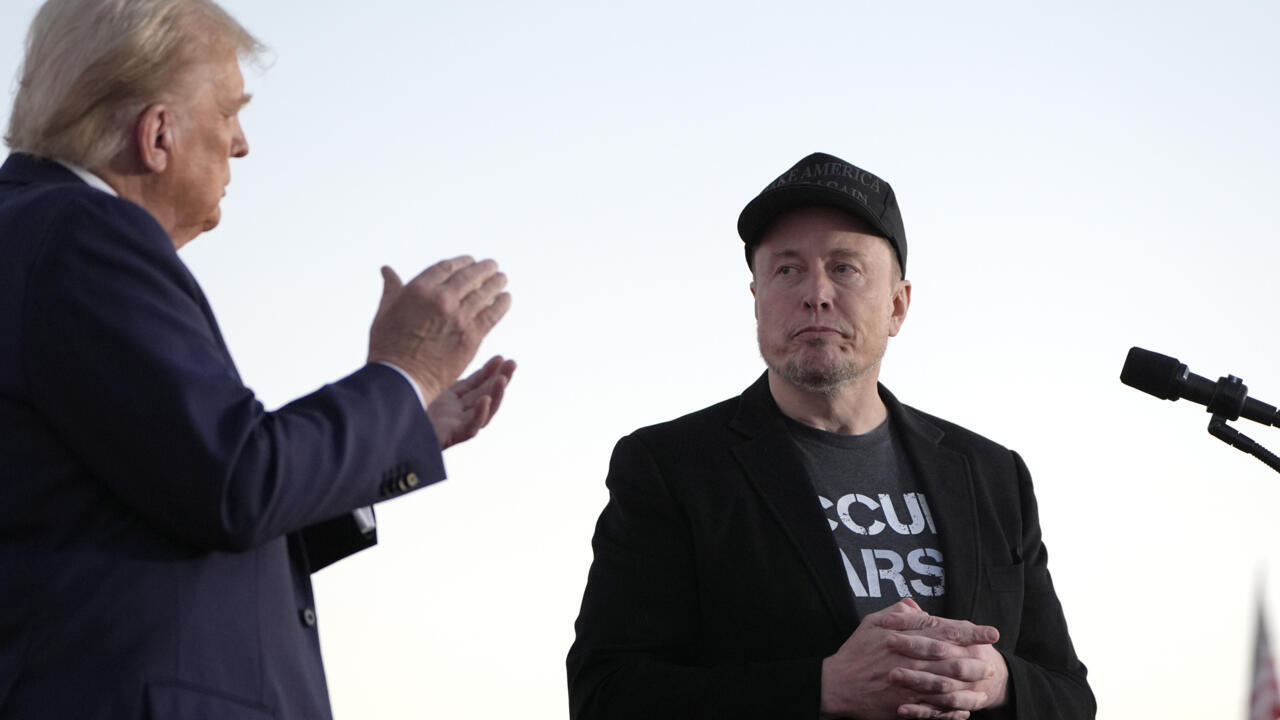Elon Musk and President Donald Trump’s violent feud on Thursday might have a significant impact on many US space initiatives and jeopardise around $22 billion of SpaceX’s federal contracts.
Musk’s criticism of Trump’s tax-cut and spending legislation, which started last week, was the starting point of the dispute, which swiftly got out of hand. When Musk talked in the Oval Office, Trump snapped at him. Then, Musk attacked Trump in a string of X postings, threatening to revoke federal contracts with Musk’s businesses.
STORY CONTINUES BELOW THIS AD
Musk took the warning seriously and announced that he would begin “decommissioning” SpaceX’s Dragon spaceship, which is used by Nasa.
Hours later, however, Musk appeared to reverse course. Responding to a follower on X urging him and Trump to “cool off and take a step back for a couple of days,” Musk wrote: “Good advice. Ok, we won’t decommission Dragon.”
Still, Musk’s mere threat to abruptly pull its Dragon spacecraft out of service marked an unprecedented outburst from one of Nasa’s leading commercial partners.
Under a roughly $5 billion contract, the Dragon capsule has been the agency’s only US vessel capable of carrying astronauts to and from the International Space Station, making Musk’s company a critical element of the US space program.
The feud raised questions about how far Trump, an often unpredictable force who has intervened in past procurement efforts, would go to punish Musk, who until last week headed Trump’s initiative to downsize the federal government.
If the president prioritized political retaliation and canceled billions of dollars of SpaceX contracts with Nasa and the Pentagon, it could slow US space progress.
Nasa press secretary Bethany Stevens declined to comment on SpaceX, but said: “We will continue to work with our industry partners to ensure the president’s objectives in space are met.”
STORY CONTINUES BELOW THIS AD
Musk and Trump’s tussle ruptured an extraordinary relationship between a US president and industry titan that had yielded some key favours for SpaceX: a proposed overhaul of Nasa’s moon program into a Mars program, a planned effort to build a gigantic missile defence shield in space, and the naming of an Air Force leader who favoured SpaceX in a contract award.
Taking Dragon out of service would likely disrupt the ISS program, which involves dozens of countries under a two-decade-old international agreement. But it was unclear how quickly such a decommissioning would occur. Nasa uses Russia’s Soyuz spacecraft as a secondary ride for its astronauts to the ISS.
SpaceX’s rise
SpaceX rose to dominance long before Musk’s foray into Republican politics last year, building formidable market share in the rocket launch and satellite communications industries that could shield it somewhat from Musk’s split with Trump, analysts said.
“It fortunately wouldn’t be catastrophic, since SpaceX has developed itself into a global powerhouse that dominates most of the space industry, but there’s no que

